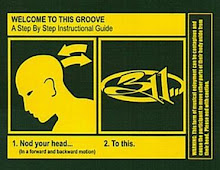I don't know if he intentionally lied to the people of Ohio - and the rest of us too because we have television, the Internet and newspapers - or just foolishly repeated what he or ones of his aides (a now former aide?) read in a blog on the ultra-conservative The Washington Examiner website.
The blog, written by Paul Bedard, claimed that "...Jeep, the rugged brand President Obama once said symbolized American freedom, is considering giving up on the United States and shifting production to China. Such a move would crash the economy in towns like Toledo, Ohio, where Jeeps are made and supplied, and rob the community of the economic security they thought Obama's auto bailout assured them."
After reading the blog post, I can see where he might come up with that idea. But Romney should know by now that you cannot trust right wing news media (or left wing, for that matter) to give you the facts. Do a little research. Expect more from your employees, Mr. Job Creator.
The Chrysler company was quick to offer a terse rebuttal. Gualberto Ranieri, Senior Vice President of Corporate Communications, replied to this gaffe on the Chrysler website. He wrote:
There are times when the reading of a newswire report generates storms originated by a biased or predisposed approach.
On Oct. 22, 2012, at 11:10 a.m. ET, the Bloomberg News report “Fiat Says Jeep® Output May Return to China as Demand Rises” stated “Chrysler currently builds all Jeep SUV models at plants in Michigan, Illinois and Ohio. Manley (President and CEO of the Jeep brand) referred to adding Jeep production sites rather than shifting output from North America to China.”
Despite clear and accurate reporting, the take has given birth to a number of stories making readers believe that Chrysler plans to shift all Jeep production to China from North America, and therefore idle assembly lines and U.S. workforce. It is a leap that would be difficult even for professional circus acrobats.
Let’s set the record straight: Jeep has no intention of shifting production of its Jeep models out of North America to China. It’s simply reviewing the opportunities to return Jeep output to China for the world’s largest auto market. U.S. Jeep assembly lines will continue to stay in operation. A careful and unbiased reading of the Bloomberg take would have saved unnecessary fantasies and extravagant comments.
Ouch! Fantasies and extravagant comments? Damn, that's harsh.
The question is does it matter? I quickly browsed the erroneous blog post's comments section on The Washington Examiner website and found the usual drivel of Obama is ruining the country takes and lengthy discussions about car buying preferences. There were no retractions, there were no apologies and there is no doubt in my mind that Romney would say it again tomorrow if it helped get him elected.
The title quote is from Stephen King.
